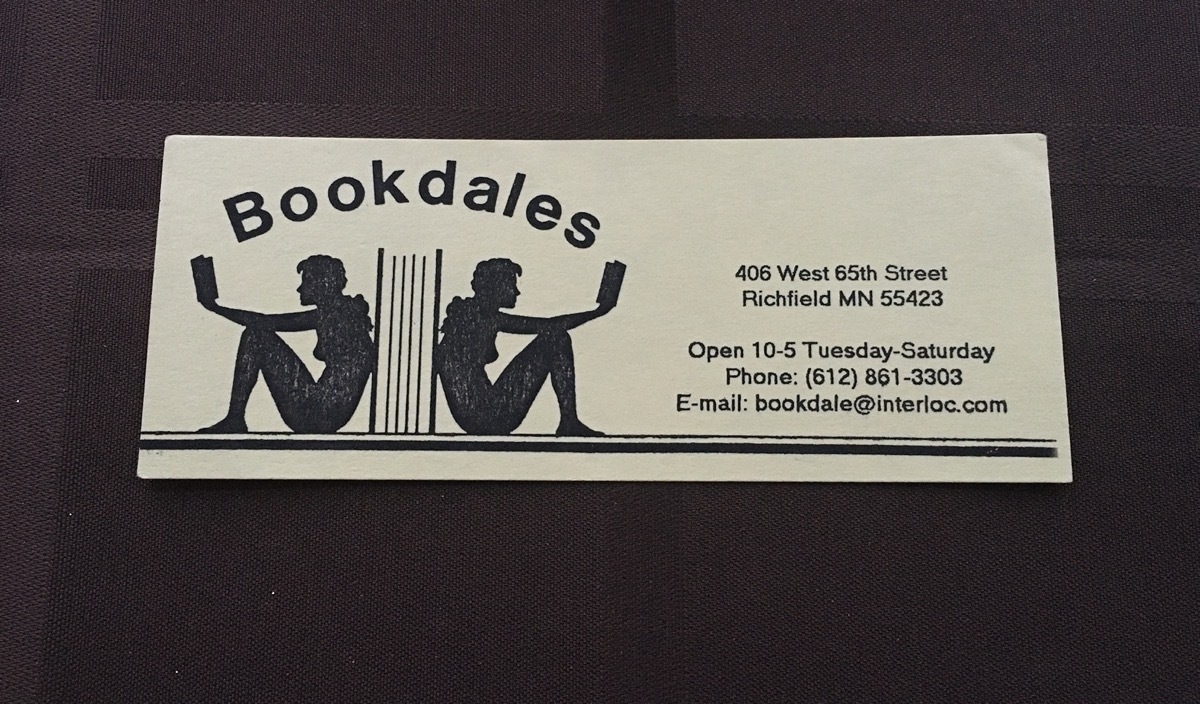Finished in May
#- CG Jung, Synchronicity (Princeton 1973, 2010)
- Kelli Russell Agodon, Dialogues with Rising Tides (Copper Canyon 2021)
- Benjamin Dreyer, Dreyer’s English (Random House 2019)
76: Kraft (graph)
77: United States of Letterpress (Erin Beckloff)
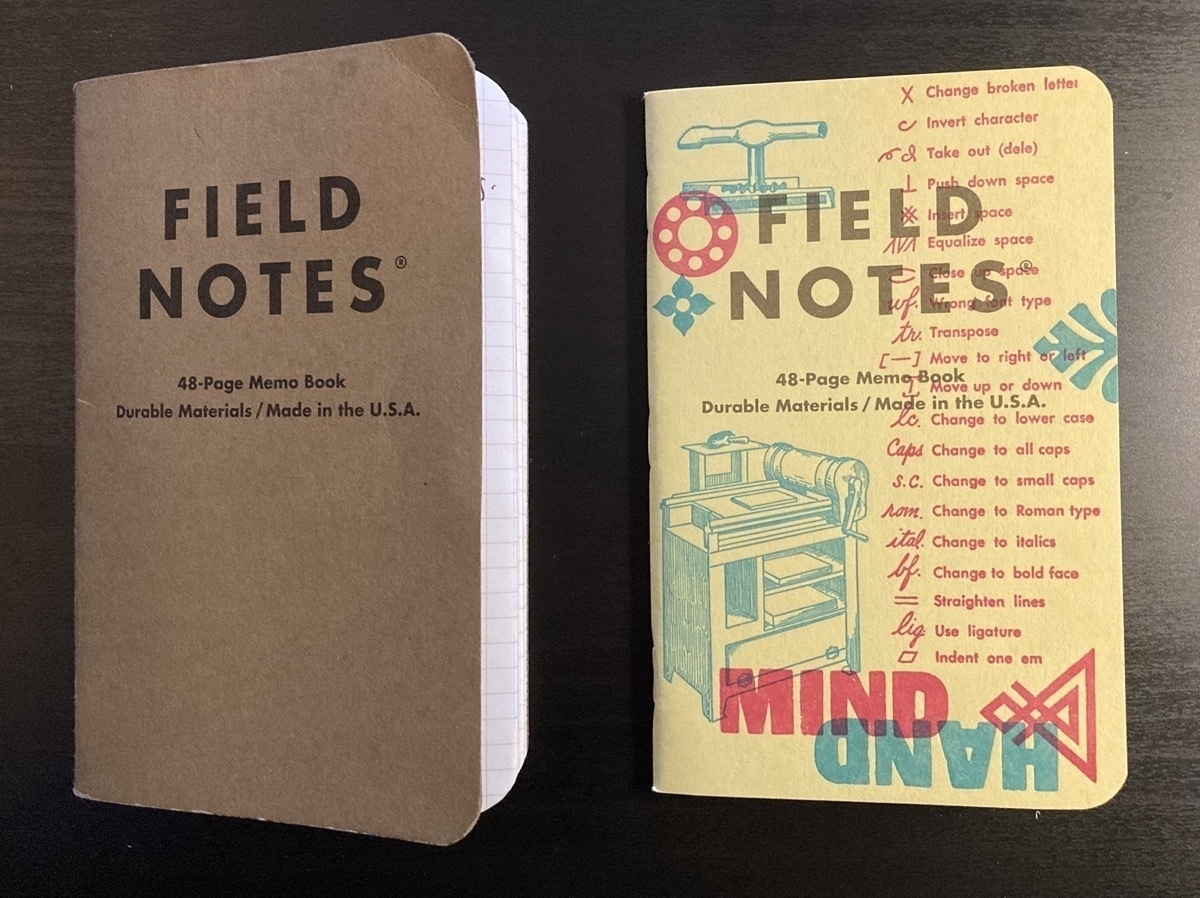
In the months since writing my response to this interview question, I’ve seen several references to extremely similar writing prompts – a typically synchronistic example of the Baader-Meinhof phenomenon.
In the Kenyon Review (from 3/2021), Michael Montlack speaks of Dorianne Laux & Joe Millar’s method of “making a list of words, throwing in a quote or fact or phrase, and taking an hour to write a draft.”
And in the Ottawa Poetry Newsletter (from 10/2020), Valerie Coulton describes Edward Smallfield’s process that “consists of a personalized postcard with four words and a quote. He used to pass these out in workshops, and then everyone would write for 15 minutes.”
I’m not surprised to see randomness and chance being integrated into writing prompts, but now I’m curious to find out what the provenance is for Rita Dove’s exercise, which I’ve been using on and off for about twenty years.
Here is the last part of my poetry mini interview.
It’s the shocking season finale! To save our gang’s favorite hang-out from foreclosure, I must perform a thrilling leap on water skis over a shark tank. And in the audio commentary, I talk about what I’m currently working on.
The fourth part in my poetry mini interview is up.
In this week’s musical episode, Hal Holbrook — fresh off his Tony award-winning run as the Mysterious Stranger — joins the cast to sing about adjectives. Performed and broadcast live before a studio audience!
(This reply was part of a conversation on Micro.blog in January 2019 about whether poetry is a skill that can be taught. I’m re-posting it here as a matter of storing it on my own server rather than letting it fade into the haze of replies at Micro.blog. See also this essay, originally written in October 2020. And also this interview.)
The drive to write can be due to the need to express oneself, but I’ve found that over-reliance on “expression” as a motivator plays into the mystical idea that poets are supposed to be “inspired,” which all too often leads to stasis and frustration.
If you wait to be inspired, you’ll be waiting a long time. And when you finally are inspired, you’ll have had no practice, and the product will fall far short of the ideal in your head. No one thinks they can simply be inspired to write a song and, never having played before, just pick up a guitar and boom: a song. So why would writing be any different? Well, I believe it’s because we think we’re practicing all the time, by virtue of using language to, well, talk.
That is, many of us think that writing is the same as talking — and, even more so, that writing is the same as communicating. But poetry isn’t exclusively about communication or expression. (Of course, neither is speech, but that’s a discussion for another time.)
A poem is an event made out of sounds — sounds which just happen to be human language. A writer makes words do things beyond their usual scope, and this takes practice. It also takes a lot of research — that is, reading — to see what other writers have managed to do with words.
If you learn to work the raw materials, you’ll be better prepared for when you are inspired. And you may eventually discover that the joy of working the raw materials is enough.
And here is the third post in my ongoing poetry mini interview.
In this “very special” episode — animated, in homage to The Sorcerer’s Apprentice — I wonder how I know when a poem is finished. Grace Paley guest-stars.
75: Letterpress (Genghis Kern)
76: Kraft (graph)
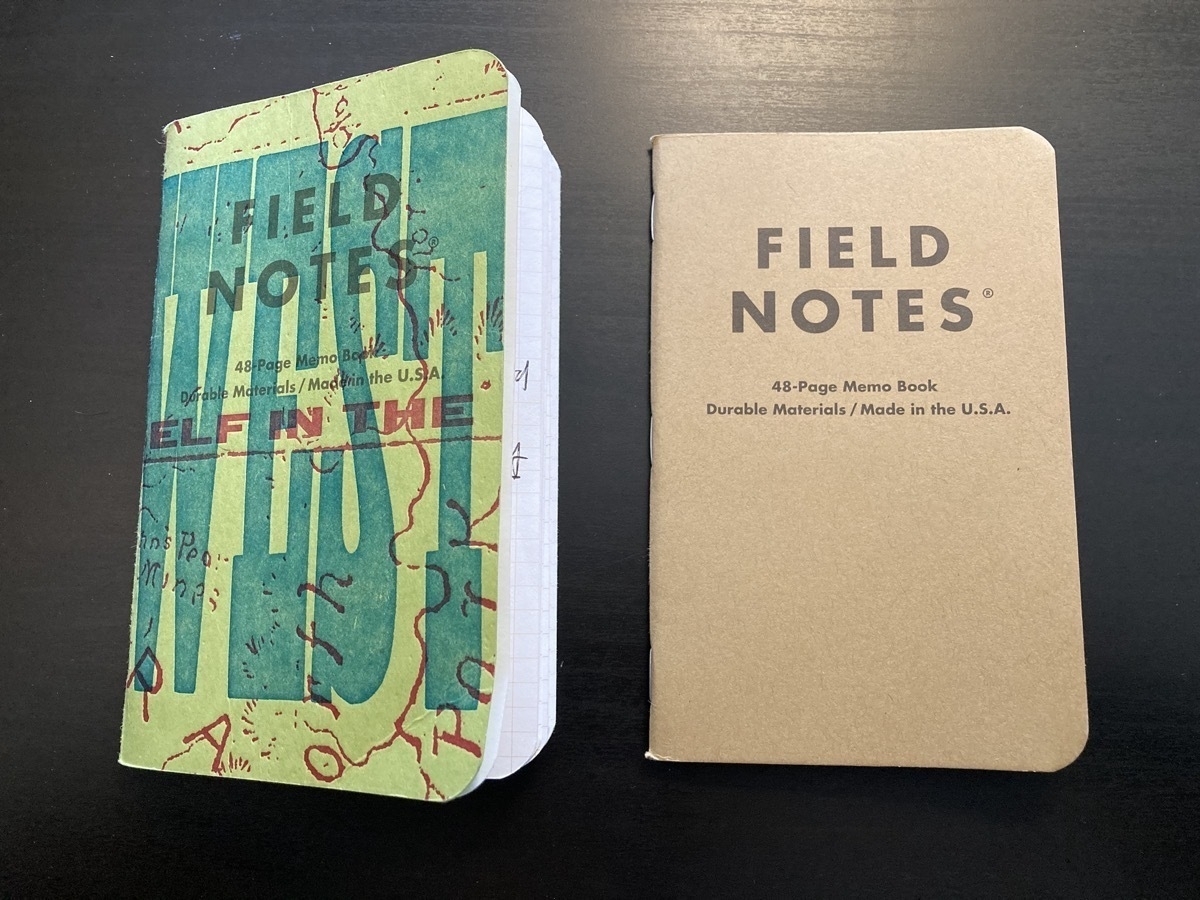
The second installment in my five-part “poetry mini interview” has just been posted.
In this week’s exciting episode — groundbreaking in its use of CGI — I answer the question, “What poets changed the way you thought about writing?” Special appearance by the late John Engman in a flashback.
What if you asked me a question and I just asked another question in reply? Or a bunch of questions? Would you find it annoying? Why would I do something like that? To be clever and rhetorical, or coy and evasive?
Here is the genre-defying pilot, in which I say the word “accomplish” so many times it stops holding any meaning whatsoever: part one of my poetry mini interview.
I answer one question a week for the next five weeks.
Another just surfaced.
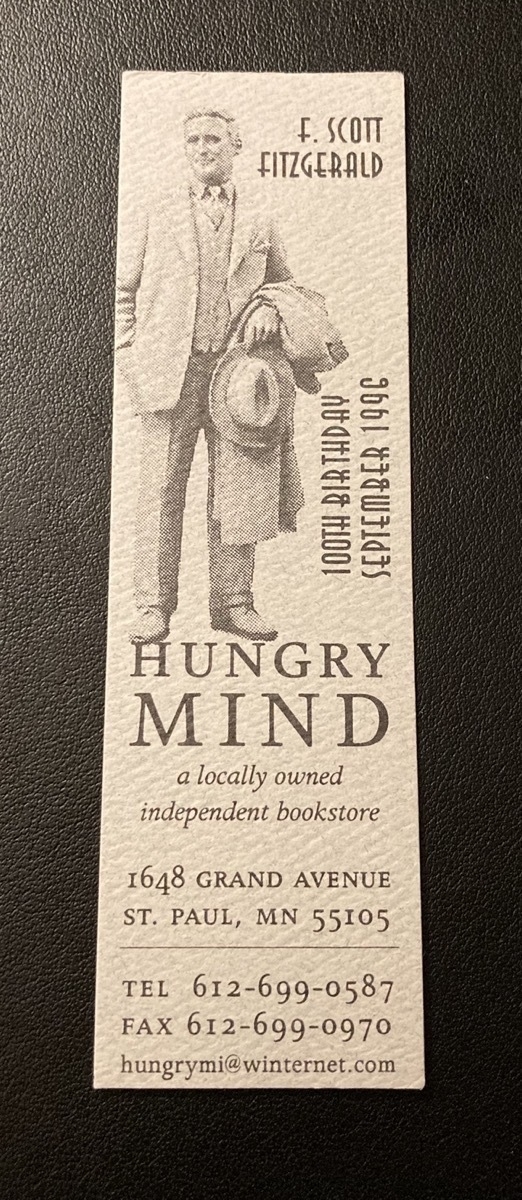
The last time I was in a bookstore was 55 weeks ago. Since then, I’ve bought every book online, most from independent bookstores or, when I could, directly from the publisher. Only one bookstore has thought to include some bookmarks.
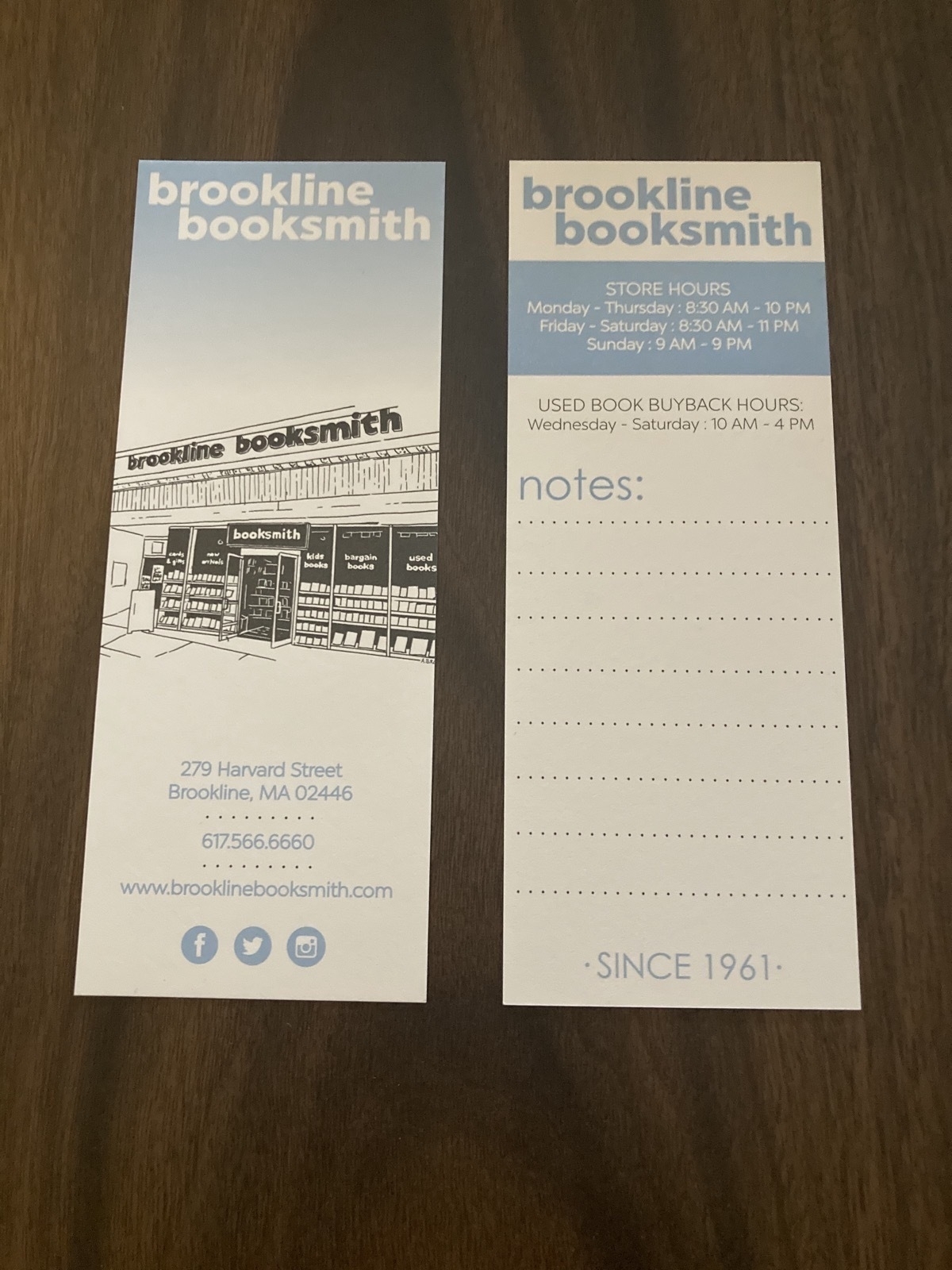
74: Nat’l Parks (Rainier)
75: Letterpress (Genghis Kern)

The third series didn’t last. After an extremely promising first few days, I discovered the source text was problematic; I kept landing on passages that needed way too much massaging to render them usable.
So I’ve settled on a different text and it’s been so much better. I even did five in one sitting the other day, just for kicks, which caught me up on the days I’d missed while looking for a new text.
I had to remind myself of a similar stumble before the second series, where I cast about for over two weeks, trying out three or four different source texts to see if they’d work. Something that looks like it’s going to be great can often present problems that make the chance operation more cumbersome or annoying than it’s worth.
Maybe I’ll talk about what I’ve found to be good and poor source texts some time.
Also, there’s something I’m trying to do differently this time. The poems in the earlier series each stood very much on their own. They all felt like they belonged together, of course, by virtue of the source texts setting the tone, so to speak; but they were each quite self-contained, at least to my ear. This time, I’m holding the idea that they are stanzas in a longer work.
Are they all by the same “speaker”? Are they parts of an ongoing dialogue of some kind? Not sure. If I continue my habit of not looking back at earlier days’ poems, then there won’t necessarily be any explicit through-line from one poem to the next any more than in the earlier series, since it will be yet another exquisite corpse, of sorts. But sometimes, simply “holding an idea” can be enough to alter the trajectory. We’ll see whether that’s true for this project or not.
I started my third chance operation series yesterday. As with the first two, I’m drawing five words at random from a predetermined list, then I’m using a source text to choose a line at random.
The first series ran for about forty days and the second for a bit over fifty days, which felt right for each of them. But I plan on running this series for at least three months, to generate as many as ninety or a hundred poems, from which I can select and winnow. This time, I want as many options as possible: I want the luxury to cut ruthlessly and still have something left over after the carnage.
I plan on doing it daily, but I did two today, so I’ve already written three. I also intend to not look back at the pieces until I’ve written at least 50 or 60, but I went back and copied out these first three poems since I had left them in something of a mess. And… something is happening. Something is clicking. I may even have a title for the project already.
73: Nat’l Parks (Denali)
74: Nat’l Parks (Rainier)
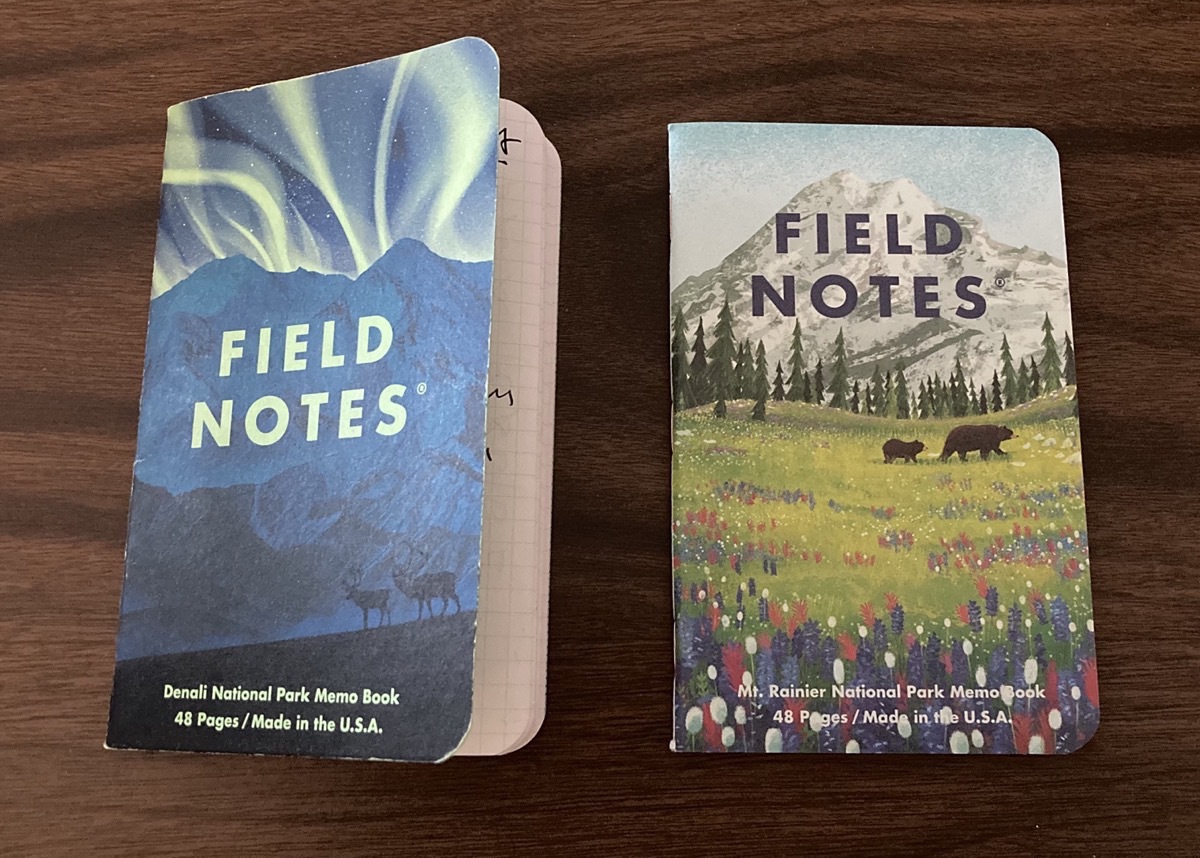
A poem of mine, Polly, is up at Autumn Sky Poetry Daily.
I was especially pleased that the editor commented on my use of enjambment, since this was a deliberate and essential aspect, along with the mildly twisted syntax, of the poem’s halting flow. I wanted to create a music that both sang and stumbled, like the faltering breath of a fading life and of the survivor who mourns.
(I’ll be honest, I am just a little concerned that people who like this one may be startled by some of my other poems — like those Edina moms who bought the Replacements’ Pleased to Meet Me after hearing “Skyway” on WLOL as they carpooled their kids to hockey practice.)
Here’s another straggler that just surfaced.
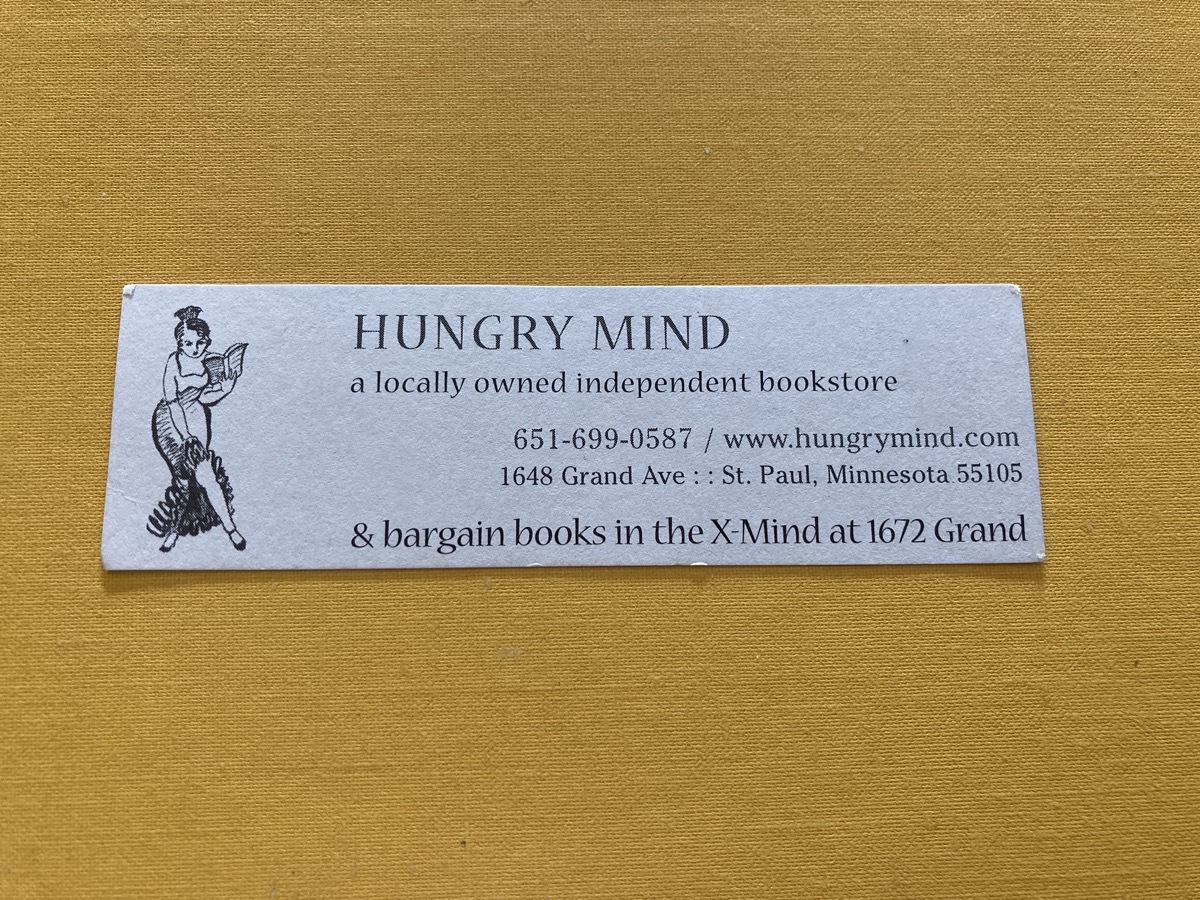
Here’s another bookmark that just turned up. I remember it being cluttered and tousled, the sort of place where accident was the only real form of discovery.
